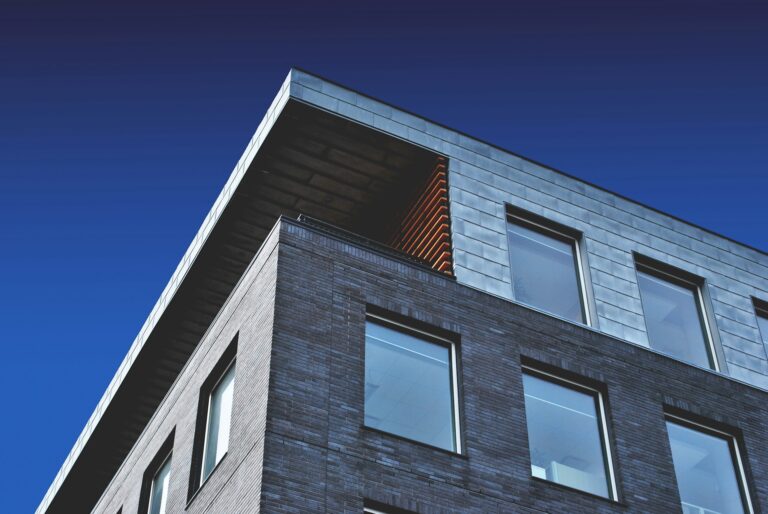
The roof of your commercial building serves several key functions, including protecting the structure from the elements, providing insulation, and contributing to the overall aesthetics of the building. Selecting the right roofing material is crucial not only for the long-term performance and durability of your roof but also for the overall energy efficiency and cost-effectiveness of your investment. Various factors come into play when choosing the most appropriate commercial roofing material for your building, such as climate, budget, building use, and maintenance requirements. With so many options available, it’s essential to carefully assess each material’s features, benefits, and drawbacks to make an informed decision.
Continue reading as we delve into the critical factors to consider when selecting the right commercial roofing material for your building. Preferred Home Services will discuss popular commercial roofing materials like metal, modified bitumen, and single-ply membranes, addressing their advantages and disadvantages. Furthermore, we will guide you in evaluating factors such as durability, energy efficiency, and maintenance requirements to help you choose the most suitable material for your specific needs.
Key Factors to Consider When Selecting a Commercial Roofing Material
1. Climate: The local climate plays a significant role in determining the most suitable roofing material for your building. Certain materials perform better in specific weather conditions, such as extreme heat, heavy rainfall, or severe snowstorms. Ensure the material you choose can withstand the weather patterns expected in your area to maximize the roof’s longevity and performance.
2. Budget: Commercial roofing materials can vary drastically in price. While it’s important to stay within your budget, consider the long-term cost implications of the roofing material, as initial expenses may be offset by the material’s durability or energy efficiency.
3. Maintenance Requirements: Different roofing materials may require varying maintenance levels to remain in optimal condition, such as periodic inspections, cleaning, or repairs. Consider the ongoing maintenance and its costs when selecting your commercial roofing material.
4. Building Use: The intended use of your commercial building should factor into your choice of roofing material. For example, if your building houses heavy machinery, you may need a more durable, noise-insulating roof.
Popular Commercial Roofing Materials: Pros and Cons
1. Metal Roofing
Pros:
– High durability and strength: Metal roofs have a long lifespan and can withstand harsh weather conditions.
– Energy-efficient: Metal is a reflective material that helps reduce heat absorption, lowering the building’s energy usage for air conditioning during warmer months.
– Low maintenance: Metal roofs generally require minimal maintenance.
Cons:
– Higher initial cost: Metal roofing materials can be more expensive upfront than other options.
– Susceptible to damage: Metal roofs can be more prone to denting from hail or heavy debris.
2. Modified Bitumen Roofing
Pros:
– Long-lasting: Modified bitumen roofs are known for their durability, with a typical lifespan of 20-30 years.
– Energy-efficient: These roofs often include a reflective coating that can reduce energy costs associated with cooling.
– Easy to repair: Modified bitumen roofs are generally simple and cost-effective to repair.
Cons:
– Installation complexity: These roofs require a more involved installation process, often involving heat-welding or adhesives.
– Vulnerable to punctures: Modified bitumen may be more susceptible to puncture damage from heavy foot traffic or debris.
3. Single-Ply Membranes (TPO, EPDM, PVC)
Pros:
– Lightweight and flexible: Single-ply membranes are relatively lightweight and easy to install, which can result in cost savings.
– UV resistant and energy-efficient: These roofs often exhibit excellent UV resistance and energy efficiency, leading to cooler buildings and lower energy costs.
– Varied color options: Single-ply roofing materials are available in multiple colors, allowing for customization and improved aesthetics.
Cons:
– Durability: Single-ply membranes may be more vulnerable to punctures or tears, and their seams can be prone to separation over time.
– Weather sensitivity: Certain single-ply materials can have reduced performance in extremely cold or hot temperatures, making them less ideal for specific climates.
Evaluating the Durability, Energy Efficiency, and Maintenance Requirements
When choosing the right commercial roofing material for your building, it’s crucial to weigh the benefits and drawbacks of each option in terms of durability, energy efficiency, and maintenance requirements. For example, metal roofing may have a higher initial cost than some alternatives but can provide long-term savings through increased energy efficiency and low maintenance needs. Conversely, single-ply membranes may be more affordable upfront but may require more frequent inspections or repairs.
Ultimately, the best choice for your commercial roofing material will depend on your specific building needs, location, and budget. It’s essential to consult with our professional and experienced roofing experts to help you analyze your options and make the best choice for your business.
Conclusion
Selecting the right commercial roofing material is crucial for the success of any commercial building, impacting its durability, energy efficiency, and long-term performance. By considering factors such as climate, budget, building use, material, and pros and cons, you can make an informed decision tailored to your specific needs. Trust our professionals at Preferred Home Services to help guide you through the process of choosing and installing the ideal commercial roofing material for your building, ensuring the best possible investment for your business. Contact us today to learn more about our commercial roofing services Alvin, TX.


